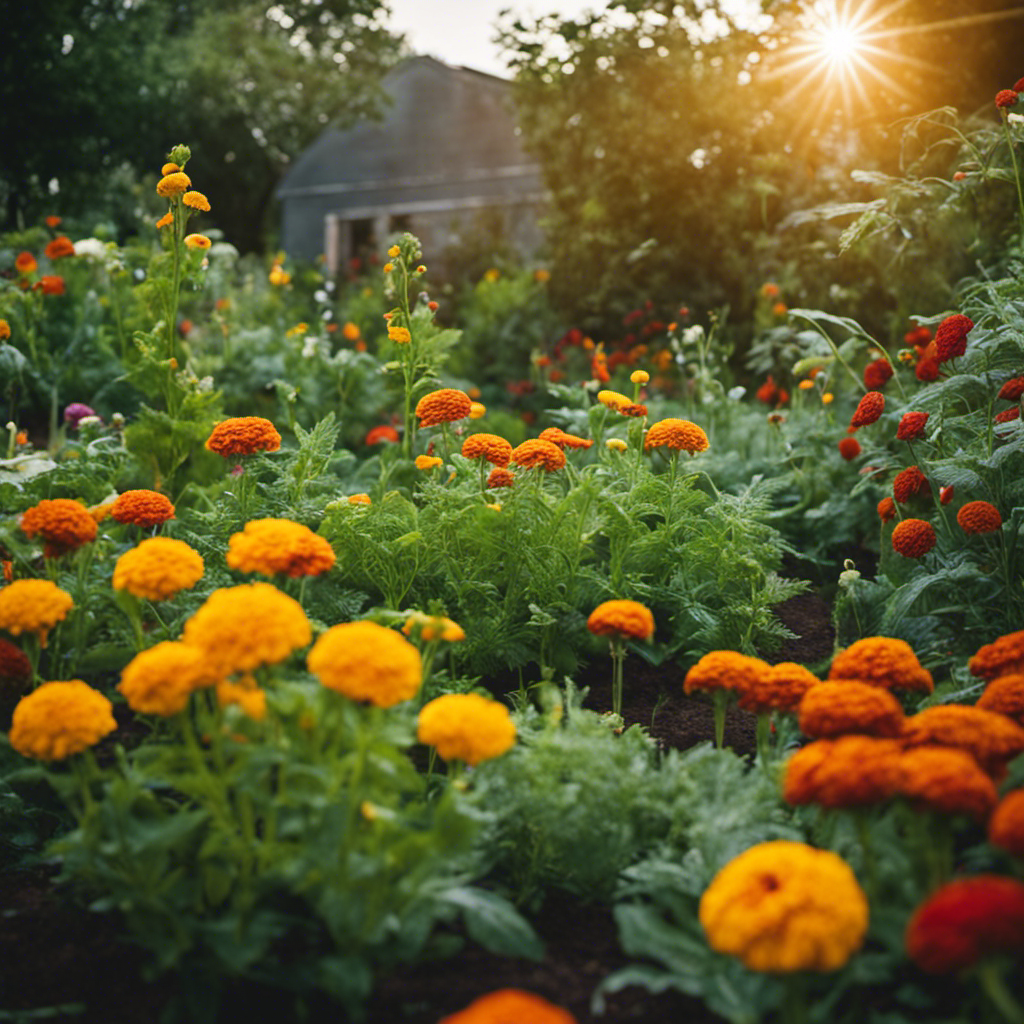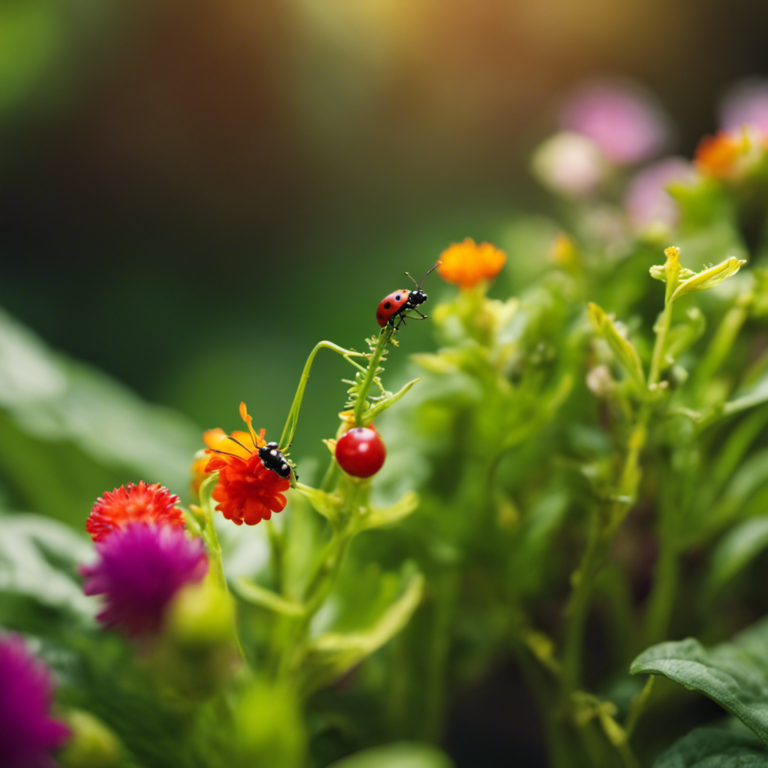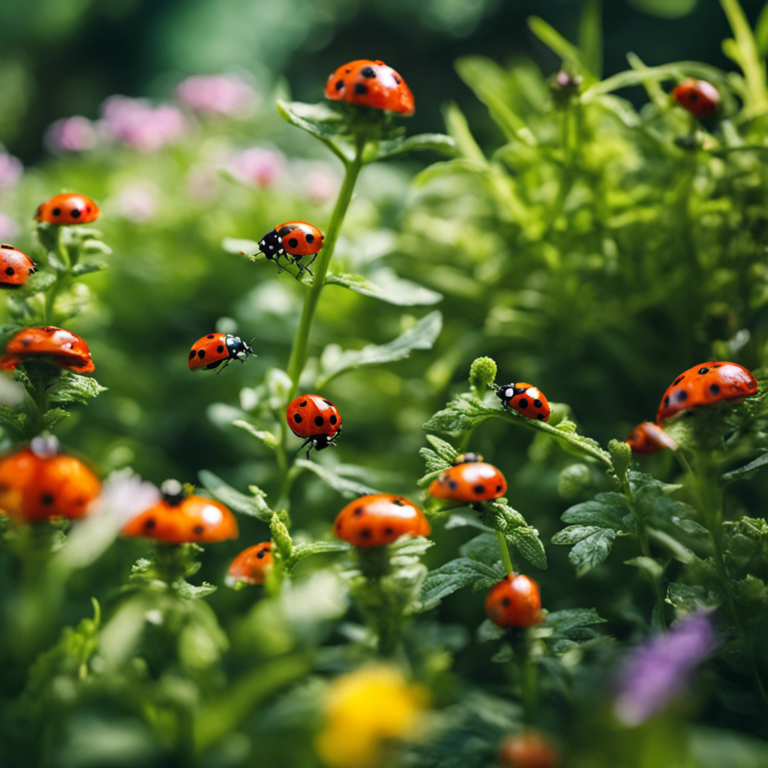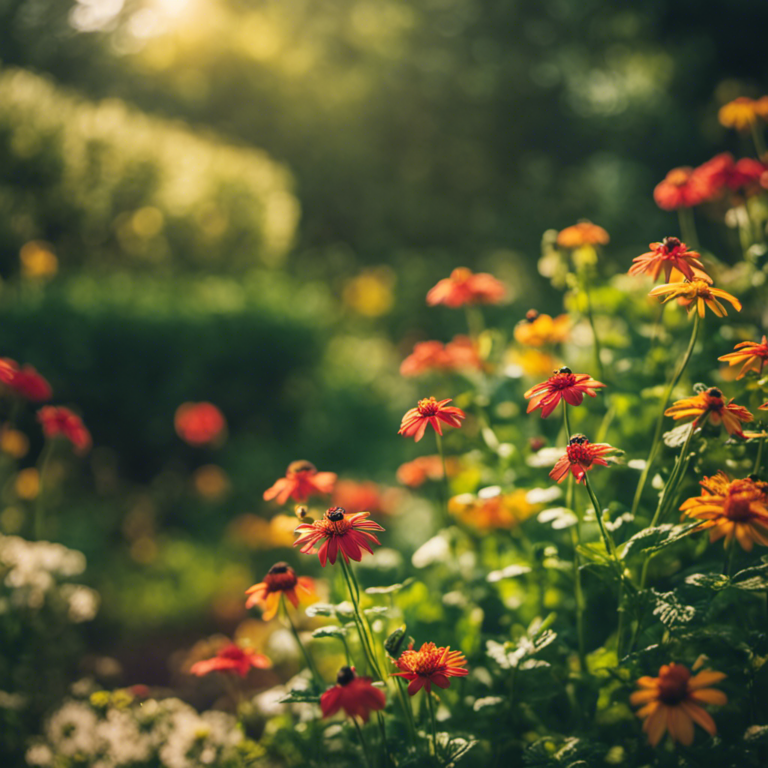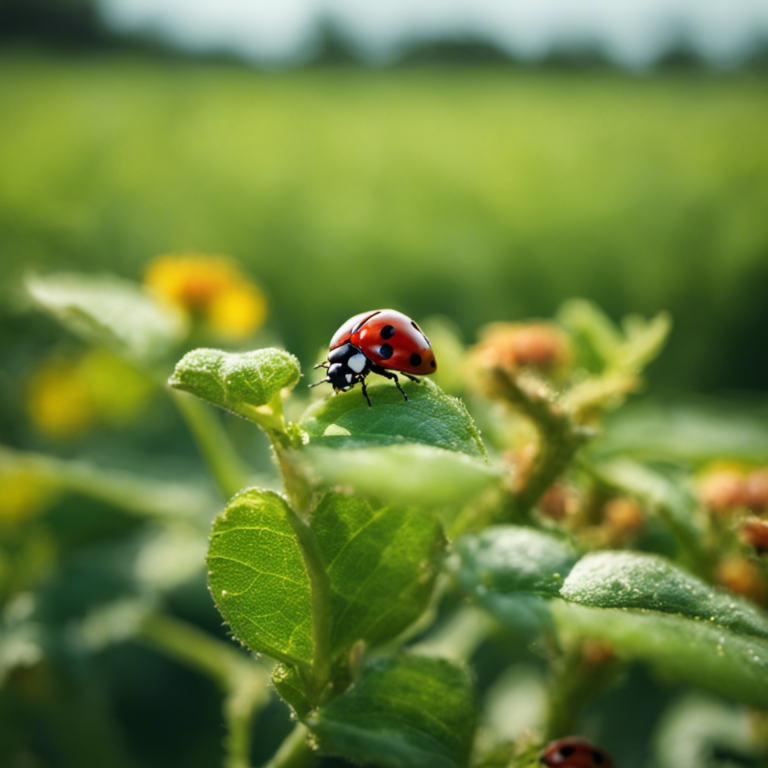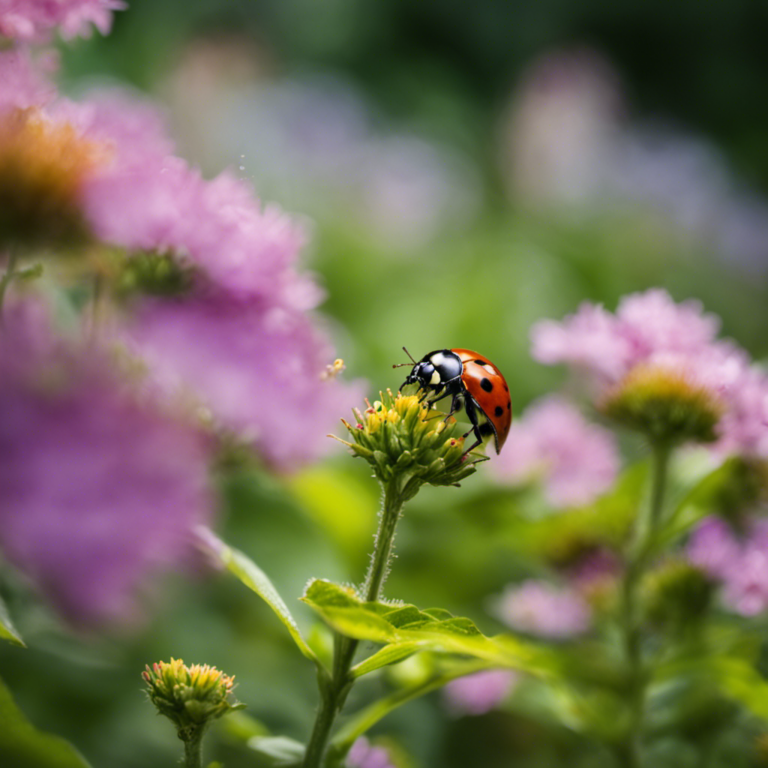Is your edible garden being overrun by pests? Don’t worry! We have a carefully selected list of safe and effective pest repellents that can help.
Imagine a garden where your plants can thrive without interference from pesky invaders. By using essential oils, beneficial insects, companion planting, physical barriers, and homemade sprays, you can protect your garden and enjoy a bountiful harvest.
Say goodbye to pest problems and get ready to reclaim your garden!
Key Takeaways
Using safe pest repellents such as essential oils, beneficial insects, companion planting, physical barriers, and homemade sprays can effectively protect your edible gardens from harmful pests. Not only does maintaining a healthy garden ensure a plentiful harvest, but it also contributes to a healthier environment. By implementing these practical strategies, you can witness the flourishing of your garden while keeping those annoying pests at bay. Embrace the satisfaction of having a pest-free garden!
Essential Oils

Using essential oils to repel pests in your edible garden is a safe and natural alternative. Essential oils are concentrated plant extracts that have been used for centuries for their various benefits. Certain essential oils have shown effectiveness in repelling insects and other unwanted garden visitors.
One way to use essential oils in the garden is through topical application. Dilute a few drops of the chosen essential oil with water in a spray bottle and apply it directly to the affected plants or surrounding areas.
Another method is using diffuser blends. Mix a few drops of essential oil with water in a diffuser and place it near your garden to create a fragrant barrier that pests will find unpleasant.
It’s important to research which essential oils are safe to use around edible plants and follow proper dilution guidelines.
Beneficial Insects
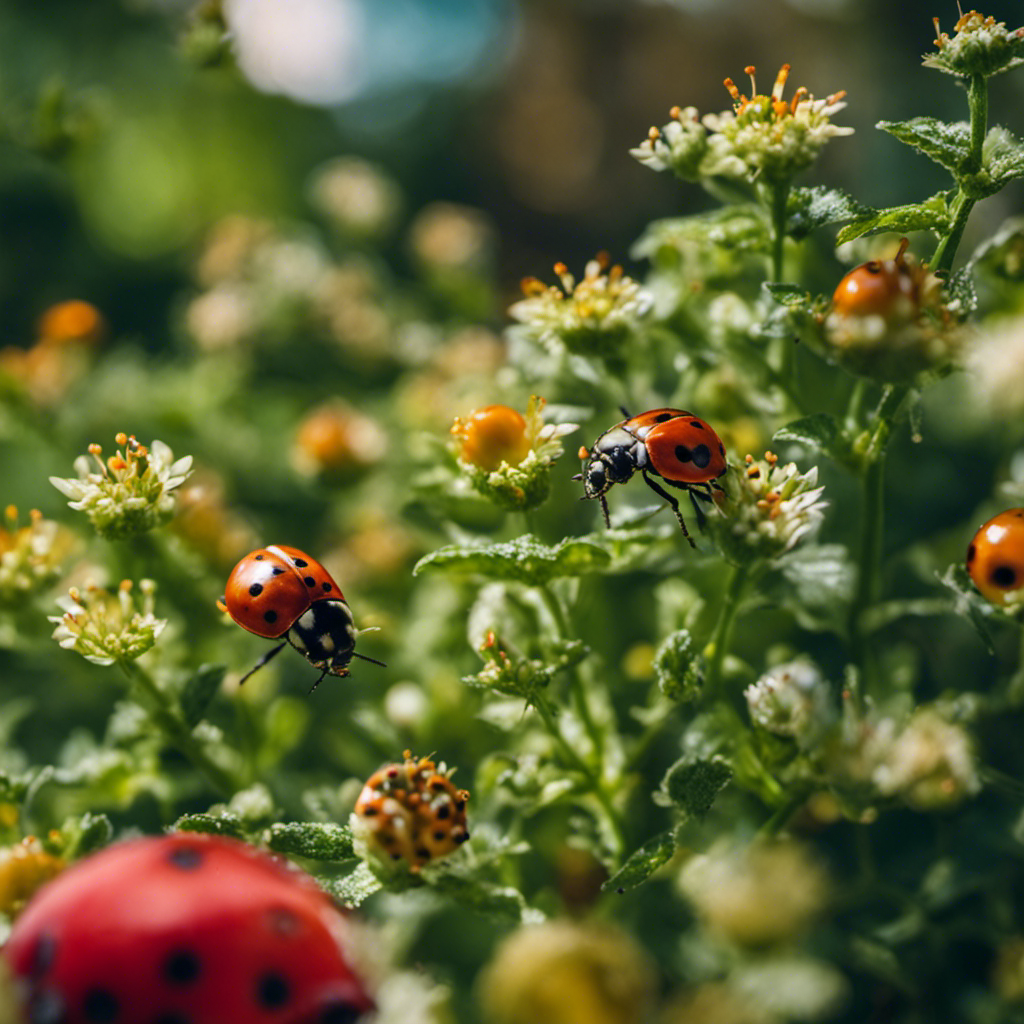
Invite beneficial insects into your garden to naturally control pests and promote a healthy ecosystem. These insects play a crucial role in integrated pest management, which helps reduce the need for harmful chemicals. By attracting these beneficial insects, you can minimize the need for traditional pest control methods and create a more balanced and sustainable garden. Integrated pest management techniques, such as planting diverse flowering plants and providing shelter, will encourage these insects to thrive and contribute to the overall health of your garden.
Here are five beneficial insects that you can attract to your garden:
-
Ladybugs: These beetles are charming and feast on aphids, mites, and other harmful pests.
-
Lacewings: With their delicate wings, lacewings prey on aphids, mealybugs, and whiteflies.
-
Hoverflies: These small insects are excellent pollinators and also help control aphids.
-
Ground beetles: Active at night, ground beetles feed on slugs, snails, and other garden pests.
-
Parasitic wasps: These tiny wasps lay their eggs in pests like caterpillars, effectively controlling their populations.
Companion Planting
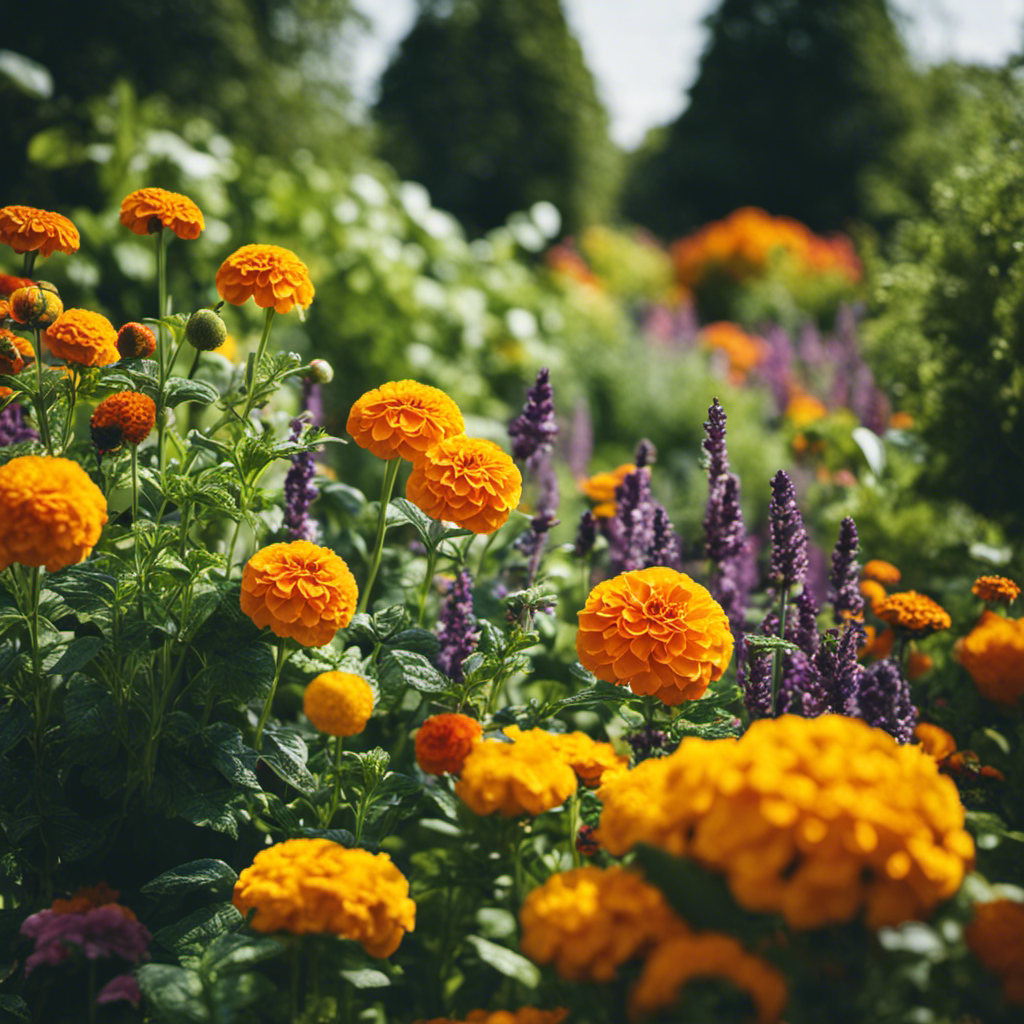
Companion Planting: Enhancing Your Edible Garden
To create a thriving and pest-resistant edible garden, one effective strategy is companion planting. This practice involves strategically placing certain plants together to improve growth, deter pests, and enhance overall plant health. By carefully selecting companion plants, you can create a harmonious ecosystem in your garden that attracts beneficial insects while repelling harmful ones.
One way to incorporate companion planting is by including beneficial herbs in your garden. Basil, dill, and parsley are examples of herbs that attract beneficial insects like ladybugs, lacewings, and hoverflies. These insects prey on common garden pests such as aphids, mites, and caterpillars, providing natural pest control and promoting the health of your plants.
Another aspect of companion planting involves using soil amendments. Some plants, like legumes, have the ability to fix nitrogen from the atmosphere and convert it into a form that other plants can use. By planting nitrogen-fixing plants alongside your edible crops, you can enrich the soil with nitrogen, which supports healthy plant growth and reduces the need for synthetic fertilizers.
By practicing companion planting and incorporating beneficial herbs and soil amendments, you can create a balanced and resilient ecosystem in your edible garden. This approach ensures the long-term health and productivity of your plants while minimizing the presence of pests.
Here are some examples of beneficial herbs and soil amendments for companion planting:
- Beneficial Herbs: Basil, Dill, Parsley
- Soil Amendments: Legumes
Remember, companion planting is a natural and effective way to promote a thriving garden. As you experiment with different combinations of plants, you’ll discover the benefits of this sustainable gardening practice firsthand.
[Custom Quote]: ‘Companion planting is like creating a supportive community within your garden, where plants work together to create a healthy and vibrant ecosystem.’
Physical Barriers
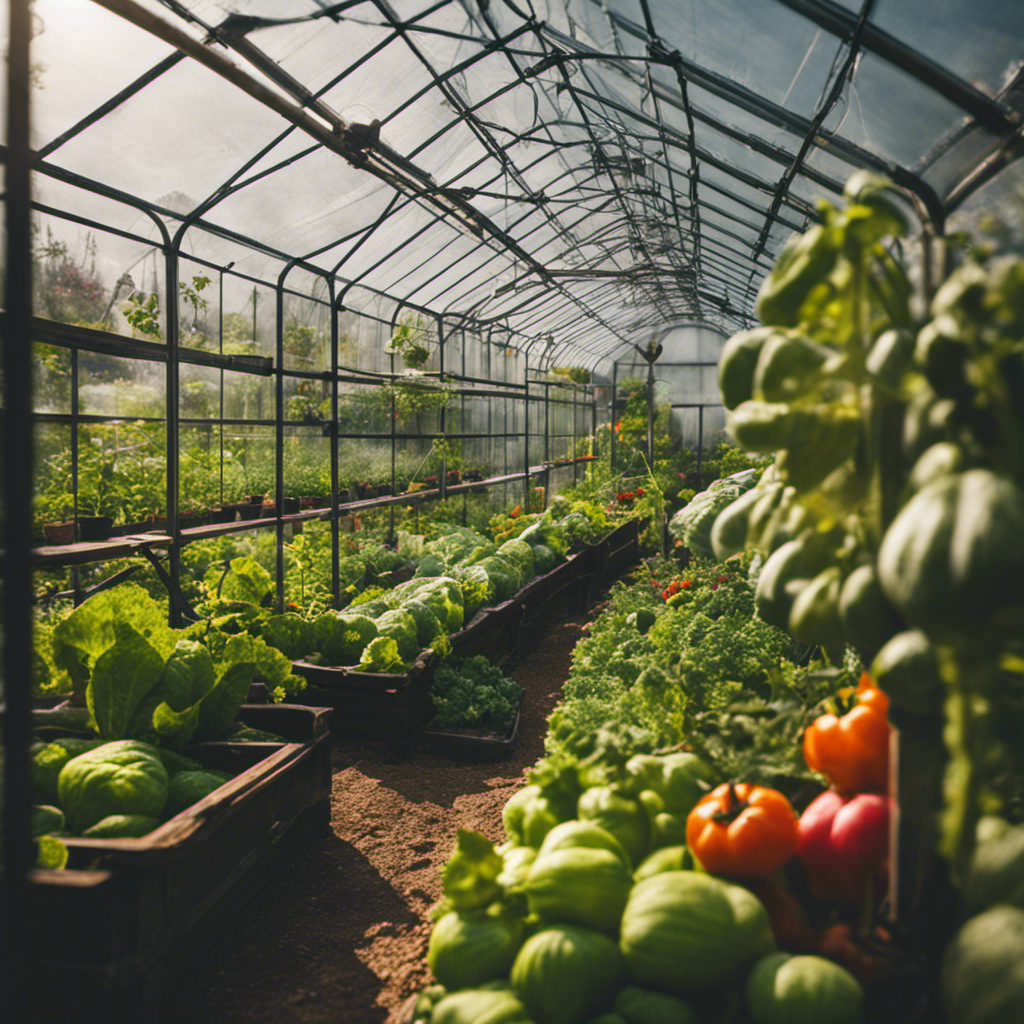
When it comes to protecting your edible garden and ensuring the health and productivity of your plants, incorporating physical barriers can be highly effective. Here are some methods you can consider:
-
Raised beds: Constructing raised beds can create a barrier that deters pests from accessing your plants. It not only keeps pests away but also promotes healthy root growth by providing better drainage and preventing soil compaction.
-
Row covers: Lightweight fabric covers, known as row covers, act as shields to protect your plants from pests. These covers allow sunlight and water to reach your plants while keeping pests at bay. They’re easy to install and remove, making them a convenient option for gardeners.
Homemade Sprays
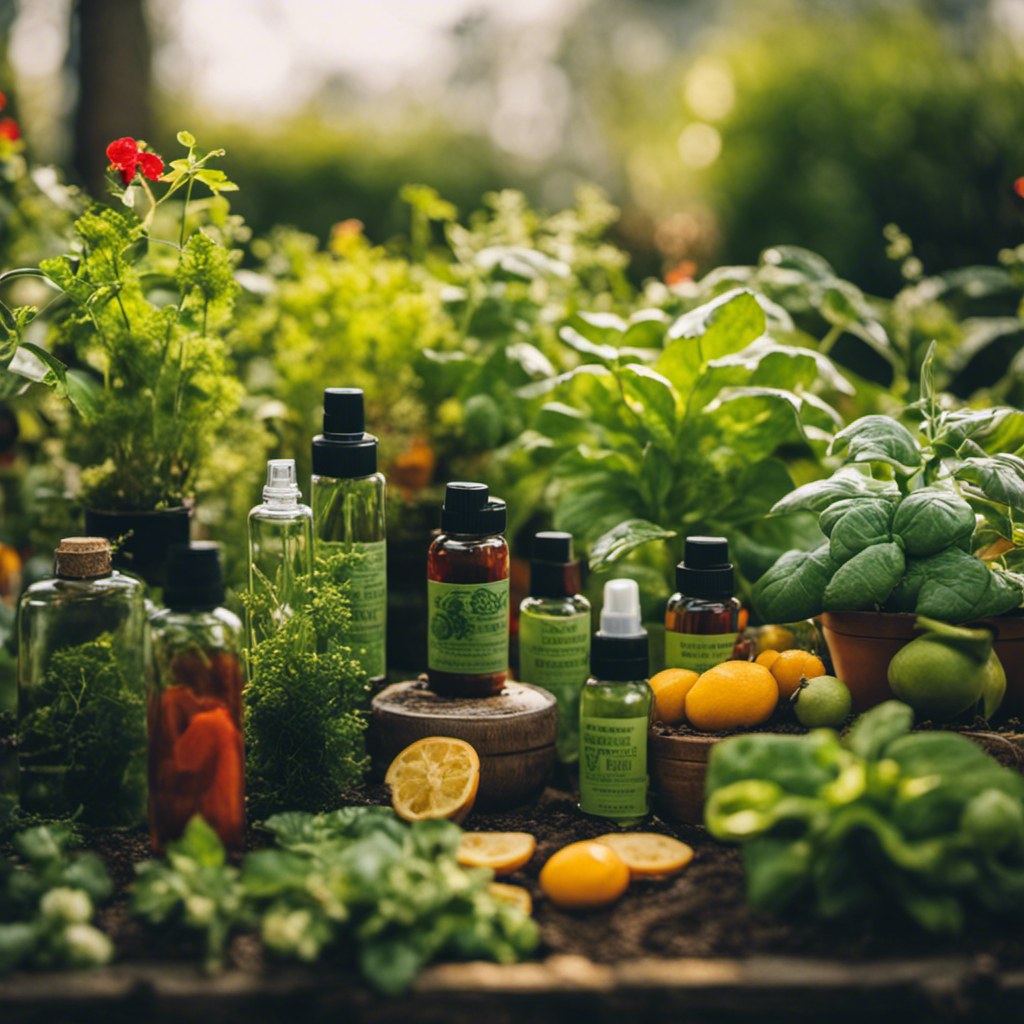
One effective way to repel pests in your edible garden is by using homemade sprays. These sprays, made with natural ingredients, can be easily created using do-it-yourself recipes.
One popular recipe involves blending garlic, onion, and cayenne pepper with water. After straining the mixture, you can spray it onto your plants to keep pests away.
Another option is to make a spray using neem oil, which is derived from the neem tree. Neem oil is known for its ability to repel insects and can be mixed with water and a small amount of dish soap to create an effective spray.
Conclusion
By using safe pest repellents like essential oils, beneficial insects, companion planting, physical barriers, and homemade sprays, you can effectively protect your edible gardens from harmful pests.
Maintaining a healthy garden not only ensures a plentiful harvest but also contributes to a healthier environment.
So, equip yourself with these practical strategies and witness the flourishing of your garden while keeping those annoying pests away.
Embrace the satisfaction of having a pest-free garden!
